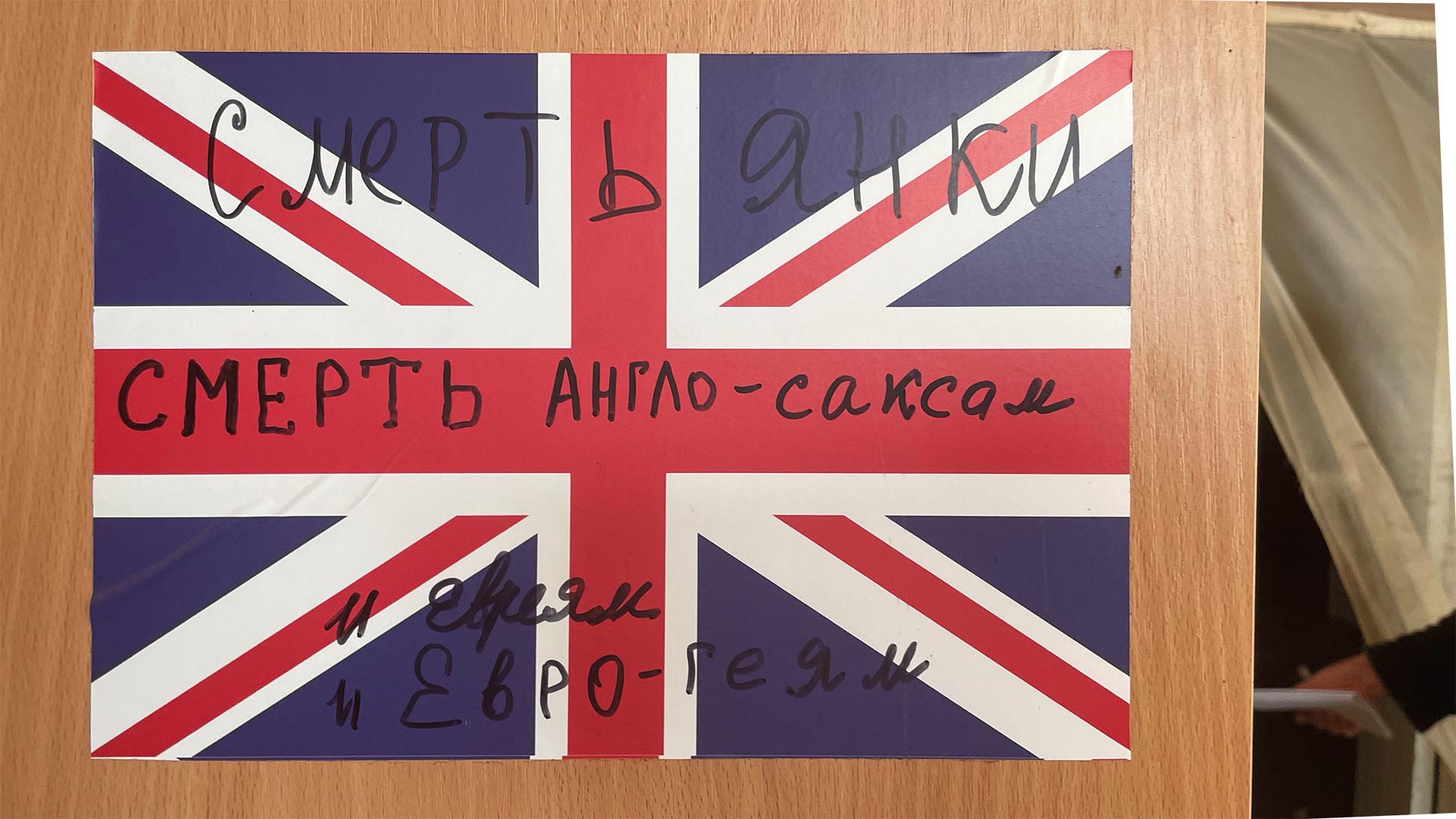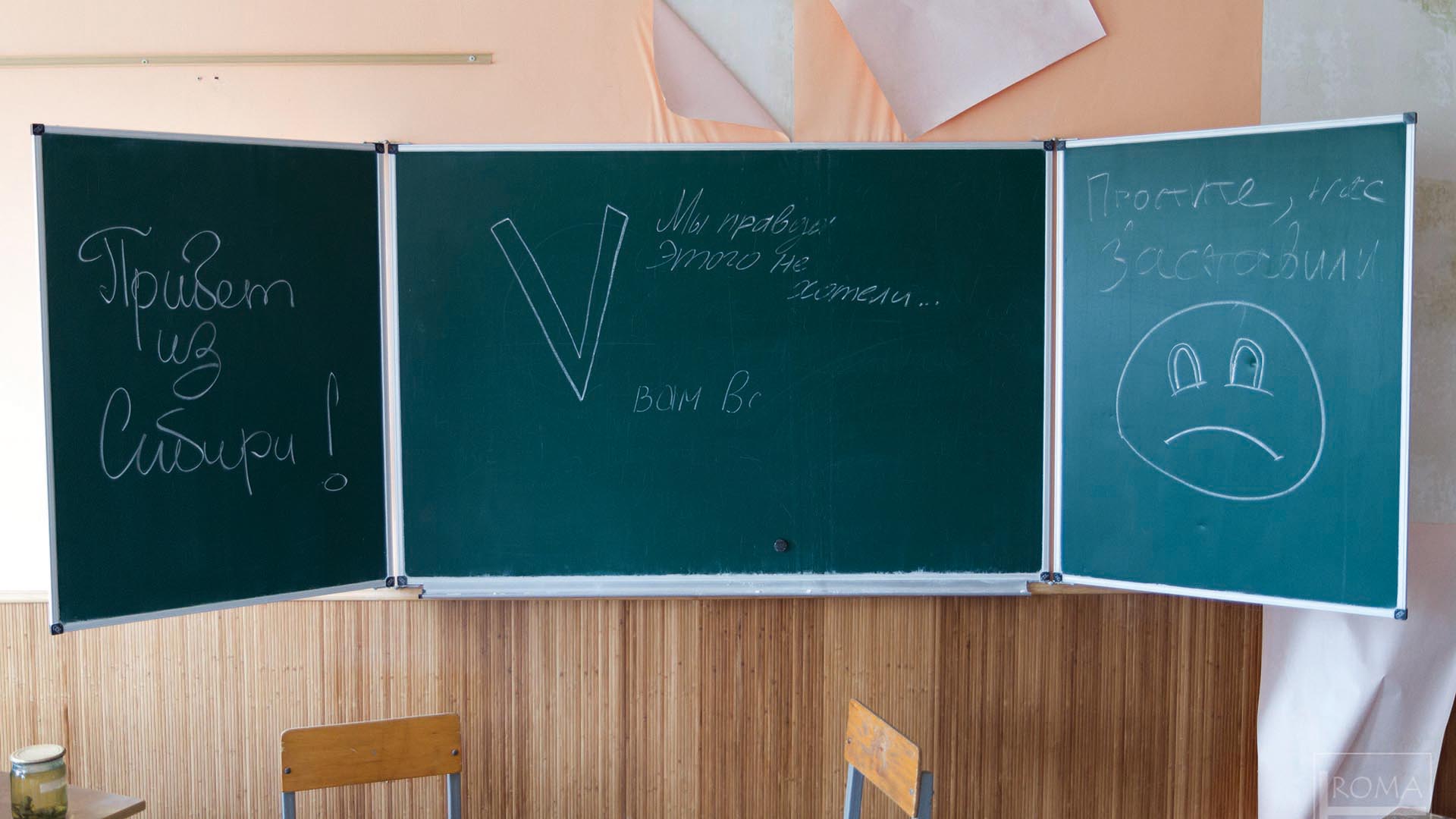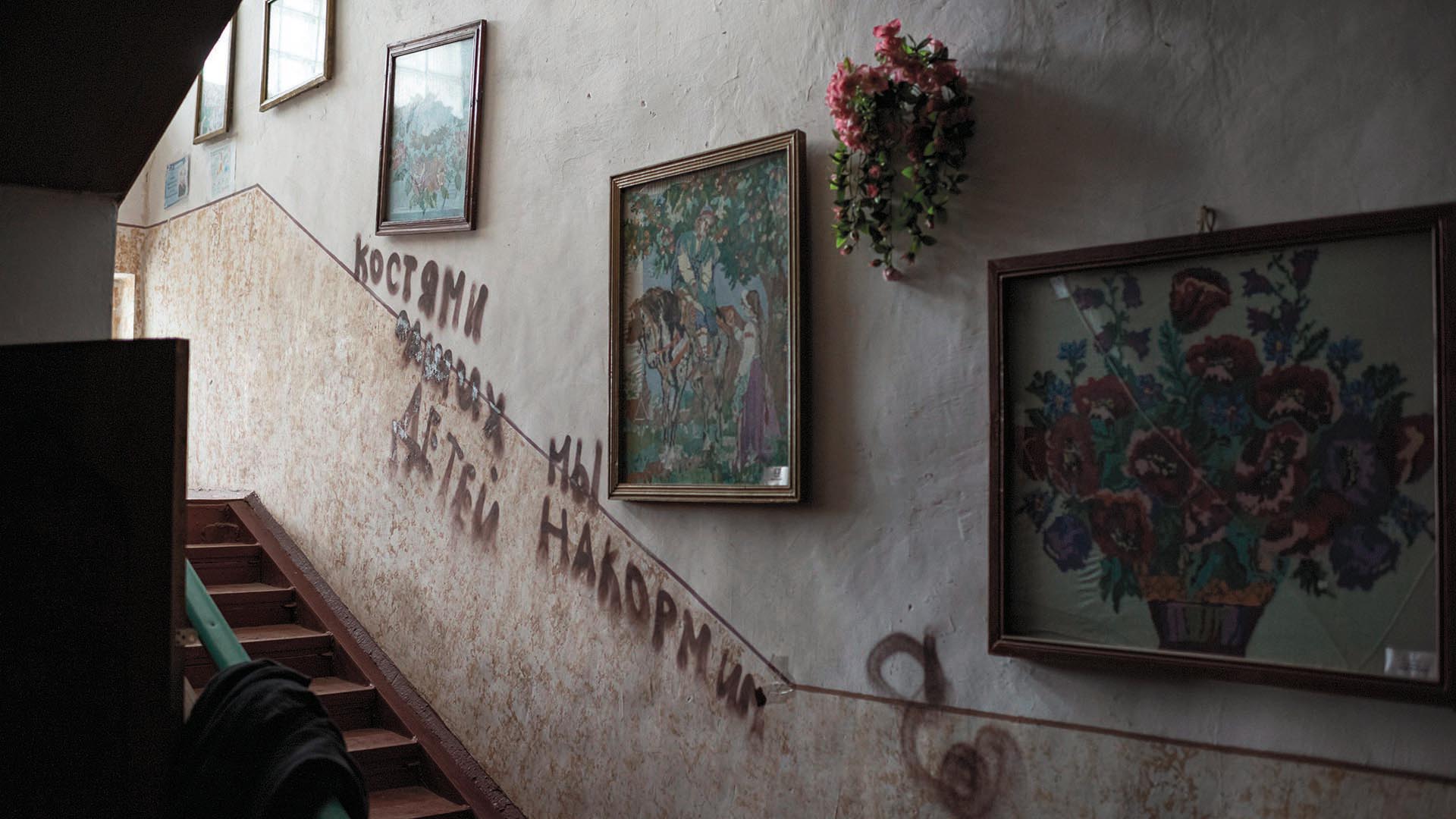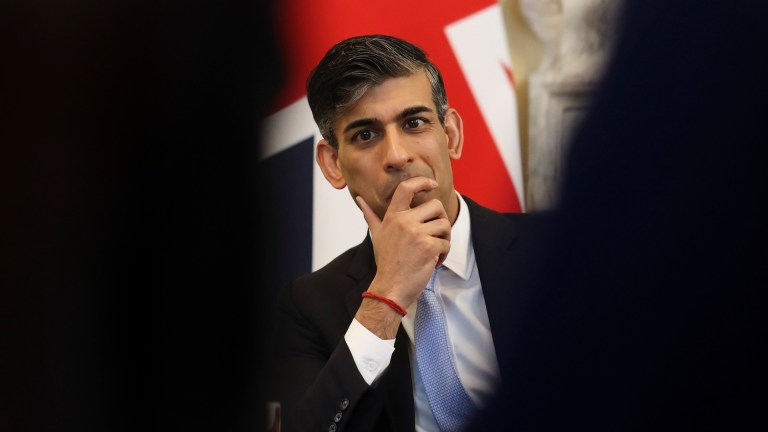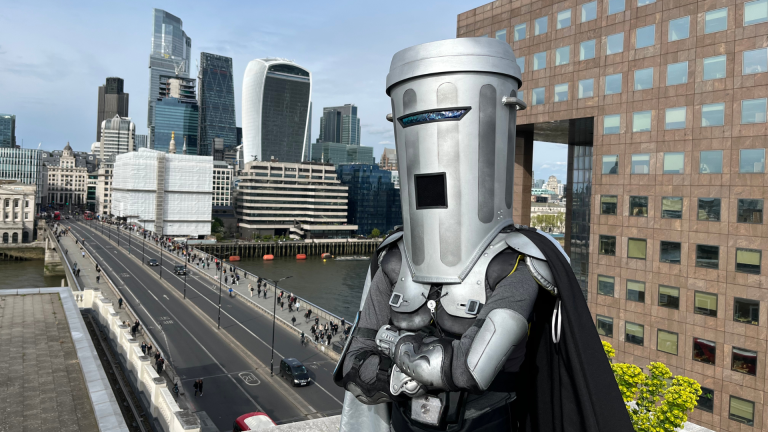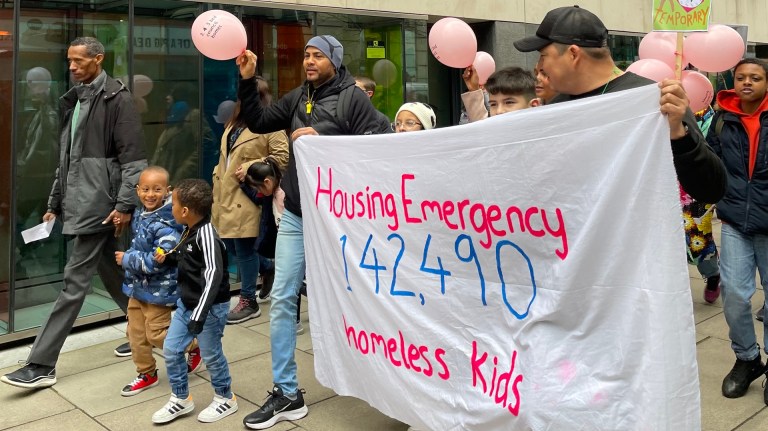In a bar in the north-eastern city of Kharkiv, Russian soldiers left behind the message: “It ain’t a war crime if you had fun.” A note in the village of Velyka Komyshuvakha reads: “There are two answers to all questions about Ukraine 1. It didn’t happen 2. They deserved it. Both are correct.”
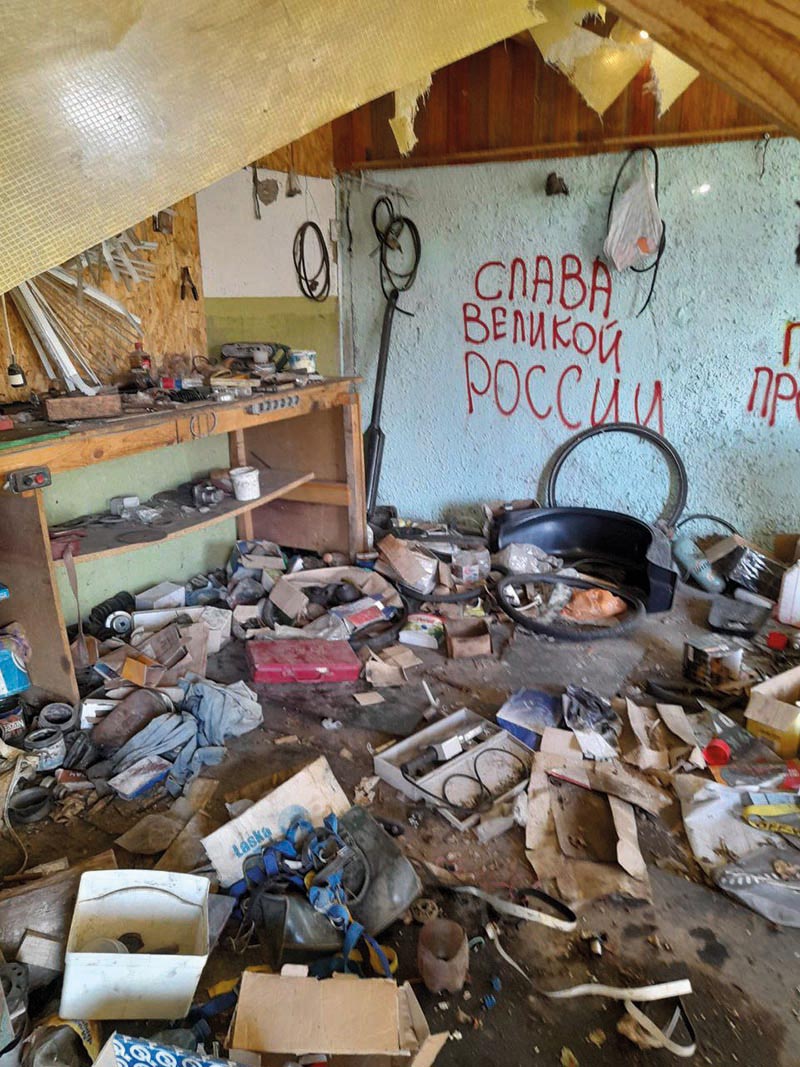
Two years on from the Russian invasion of Ukraine, which began on 24 February 2022 and has no end in sight, devastation has been left in areas under occupation by the Russian army.
As Ukrainians clean up the mess left behind – the bombed buildings, looted belongings and unidentified bodies – many have noticed that the Russian army is leaving behind a large amount of graffiti.
More than 500 examples have so far been collated by the Ukrainian non-profit organisation Wall Evidence. In April 2022, they began an online archive to record and translate the graffiti. The Wall Evidence website contains an interactive map of Ukraine. Images are collected from social media or by visiting towns and interviewing residents.
“These inscriptions are evidence of war, providing a glimpse into what the invaders were thinking, the nature of collective violence and the answers to this war,” says project manager Anastasiia Oleksii.
“It’s not just Putin’s war or the Russian government’s war, but a war that all Russians are involved in. The words they said and the narratives of destruction they conveyed… we wanted to show people around the world that this is Russia.”
